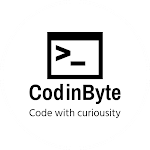As software developers, we are constantly faced with problem solving and learning new technologies. Time is limited, however, so you have to choose how to plant properly. That’s why doing stupid monotone activities can significantly reduce productivity and increase development time, instead.
Fortunately, there are many good tools out there that can do those repetitive tasks that are tedious, such as checking, typing case code, or setting up a developing environment. Leaving a long and irrational task on automated tools allows you to focus more on solving real problems, rather than doing robot work.
I deny that I am not part of the companies I will list. Also, all the tools I will talk about can be used for free.
Code Grepper
Code Grepper is a community-based question-and-answer program that allows developers to quickly find answers to their questions and concerns. Contains a browser extension that suggests a snippet of code that we think is relevant to your search.
You can not only view the responses of other developers, but you can also save snippets of code to your search query. In this way you help others who may have the same problem, or your own future, in case you can search for the same thing again.
Many view it as a TL; DR version of stack overflow; others despise it, saying it is a tool of copy-pasters. In my opinion, it is not bad in nature, and it is not good in itself: it is up to you to apply the suggestions responsibly and make sure you understand what the code actually does.
Grepper code display.
Bootstrap
Most web developers already know about Bootstrap, a free CSS framework and open source that give you access to many CSS and JavaScript templates for user sites. On the other hand, backend developers may not know how much Bootstrap can benefit them, especially since it frees up the burden of writing UI code from scratch, a task often hated by backend developers.
Here is an example of a product price page template:
An example of a Bootstrap template.
Online Compiler and Debugger
Sometimes you may need to use or correct an error, but you do not want to set the location for that improvement. This is where online compilers come in handy: you can quickly get started and edit the code without the need to install any dependencies or touch your system.
There are many options out there, but I recommend Online GDB, an online debugger and a multilingual interface, including C, Java, Python, Rust, and many more.
GDB Display Online.
AI Code Filling Engine
Have you ever encountered the frustration of writing long and repetitive switch-case handles, or seemingly endless enums, or boring code texts? Forget that feeling with modern AI finishing engines. This type of tool can greatly enhance your productivity, especially when it comes to bottle speed typing.
In addition, AI can suggest different and sometimes better ways to solve a particular problem than yours. It may be a little scary at times, though, but it is a wonderful tool you can have.
There are many AI completion engines out there, among them I have tried Kite, Tabnine, and GitHub Copilot. From now on, GitHub Copilot seems to be the best and most powerful code and document completion tool.
GitHub Copilot show.
Browser Remote IDE
Say you have your own development space in the cloud, or you just don't want to set it up on your local machine. Then remote browser-based IDEs can be a great alternative, as it allows you to upgrade and deploy your applications anywhere using high performance and remote server maintenance, as long as you have a reputable internet connection.
I personally recommend Amazon Cloud9 IDE or VSCode's extension extension, which is a tool I really use.
Wappalyzer
Sometimes you may need to know what technology a particular website uses, either because you want to know how it works, or because you are officially abusing the potential risks. Wappalyzer is a browser extension that allows you to get information about which libraries and libraries websites use for free, even contact details and monitor changes, but only for paid users.
Wappalyzer Display on the Wappalyzer website.
Valgrind
When working with low-level programs, the most annoying distractions are from memory errors and leaks, for example, access to an uninstalled identifier or skipping cache. Valgrind is a profile memory tool that can detect leaks and other problems during the operation of your system.
Valgrind is a must have for C and C ++ developers as they should always work directly on memory. Even professional engineers make mistakes, and those related to memory are usually less visible; you only get them long after they happen, when you get a seemingly unplanned severity error or an unexpected result. Sometimes they even broadcast for months unnoticed, until you try to use a particular feature of your program. In this case, how do you know which part of your code caused the error, if any?
Valgrind exhibition.
The Shell of the Dead
It says you can't access your mobile device, or you just don't want to use the shell in place for any reason, including performance or potential threats. Then cloud shells are the way to go. Among all the options, I prefer Google Cloud Shell, a free Debian-based Bash shell that lets you do everything you can on a regular local machine.
Cloud shells can be useful especially if your computer does not have enough resources to run certain programs. By using powerful remote servers, you can streamline your work and save a lot of time. Also, be aware that even small cloud containers can operate faster than your local machine. For example, free Google Cloud Shell with 2 vCPUs can assemble this compiler in just 20 seconds, against 27 seconds

